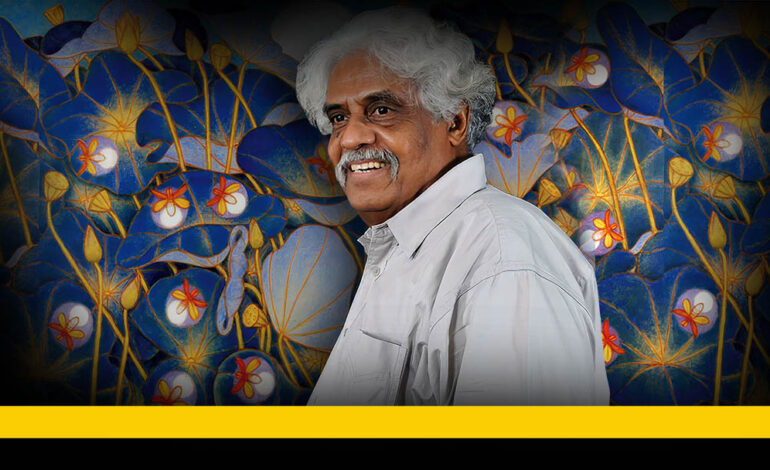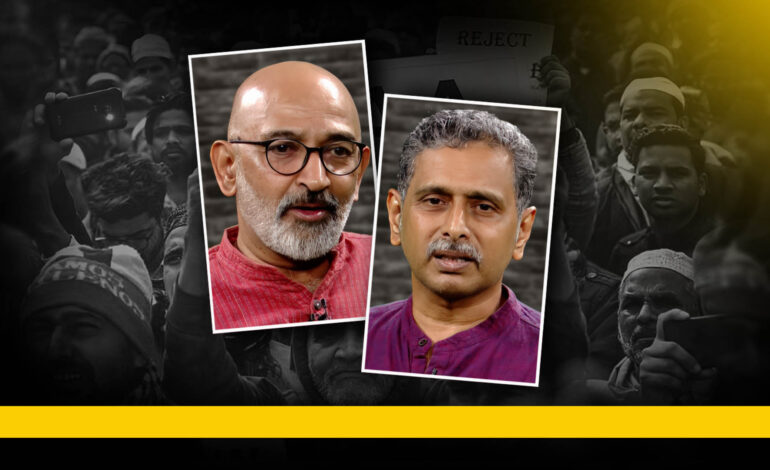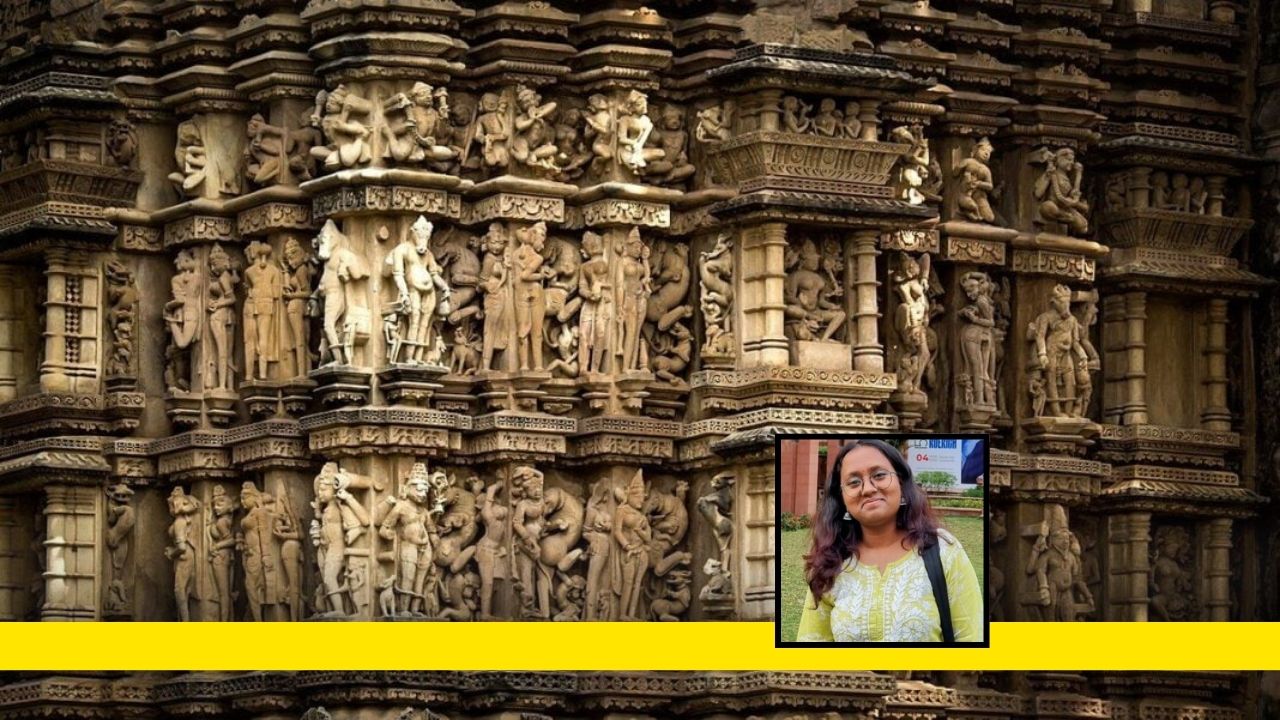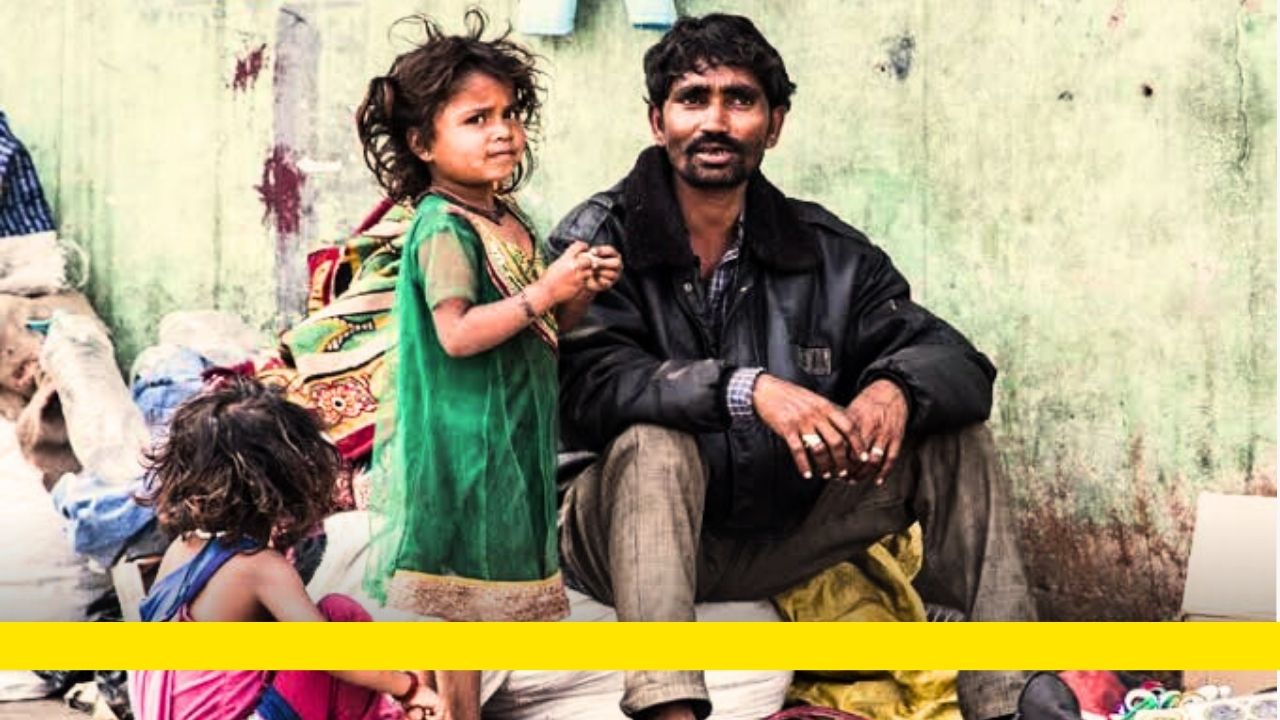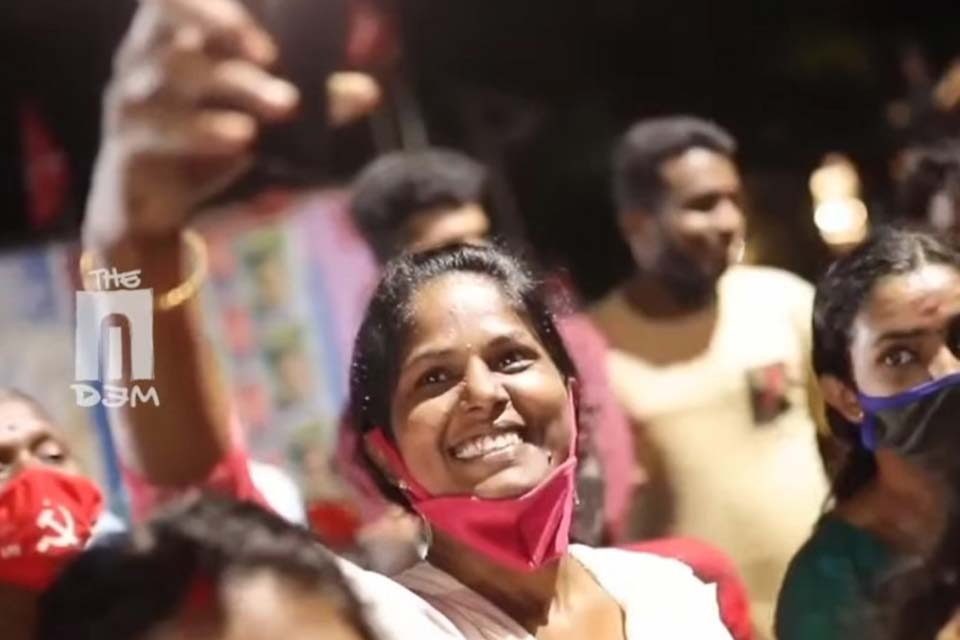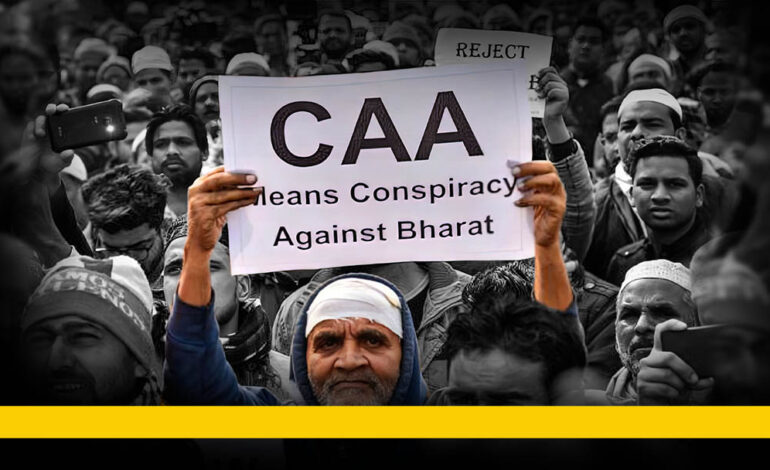
This point wise analysis prepared by the research team at Citizens for Justice and Peace (CJP) highlights how the Citizenship Amendment Act, 2019 (CAA), the rules for which were notified yesterday (on March 11, 2024), combined with the proposed National Population Register (NPR), which is the first step to a nationwide NRC (National Register of Citizens), is likely to be disastrous, not just for Muslims, but also all other Indians.
Citizenship has been defined as the right to have rights. Over the past six years, there have been clear political moves to fundamentally assault and redefine this Constitutional basis of both Indian nationhood and citizenship. Especially now, with the formulation of rules for the Citizenship Amendment Act, 2019, combined with the parallel moves to process an all India-level NPR-National Register of Citizens (NRC), without due public discussions. CJP is urging people to understand, organise and fight back democratically. Let us stand up for the Constitution of India. We must unequivocally reject CAA 2019 and at the same time in the same breath, NPR/NRC.
INDIAN CITIZENSHIP:
- Citizenship gives us the right to have rights. Apart from voting rights, citizens are entitled to fundamental rights such as equality, freedom of speech, non-discrimination, freedom of assembly, freedom of religion, etc. They have a right to permanently reside in India. Most state welfare schemes are only meant for citizens, e.g., MNREGA, reservation for SC/ ST / OBC people, food ration via the PDS, etc. Foreigners in India are only entitled to the fundamental right of life and personal liberty.
- Indian citizenship can be by birth, naturalisation, registration and annexation. In most of India, for citizenship by birth, from 1950-1987 a person has to be born here to be an Indian citizen; after 1987, apart from her/his birth, one of the parents has to be an Indian Citizen; after 2004, in addition to his/her birth, one of the parents has be an Indian Citizen and the other should not be an illegal migrant. Due to the Assam Accord, 1985, foreigners who had entered Assam before March 25, 1971, were to be given citizenship.
PROBLEMS IN THE PROCESS OF THE NPR+NRC:
- The fact that about 70% of the 19 lakh people who are out of the NRC in Assam are women shows that the method of asking people to furnish documents to prove their citizenship is incorrect at a very basic level – the NRC can only catch those who lack the required documents, not illegal immigrants. Even for rural-to-urban migration in India, the men move alone first and later try to bring women and children to the city, so it sounds impossible that there could be so many more female illegal immigrants than male ones. And now, the government is planning to implement this disastrous NRC all over India!
- The NPR is the first step of the proposed NRC (or NRIC). The NPR seems similar to the Census, but it’s not. The NPR comes under the Citizenship Act 1955 and the Citizenship (Registration of Citizens and issue of National Identity Cards) Rules, 2003, while the census is conducted under the Census Act, 1948.
The process of the NPR, which leads to the NRC is as follows:
- For the NPR, government employees will go to every home, collecting all the names and other details of every person living in India, whether citizen or foreigner.
- Then they will sit in their office, look at the information collected and decide who all seem to be “doubtful citizens”.
- Such “doubtful citizens” will then be asked to produce documents to prove that they are citizens.
- Decisions will be made about which of these “doubtful citizens” qualify to be Indian citizens.
- A ‘National Register of Indian Citizens (NRIC)’ will be prepared.
- Those whose names appear in this list will be given a National Citizenship card.
- If you don’t have the card, you are not an Indian citizen!
- Highly bureaucratic and time-consuming process.
- Tremendous power in the hands of the sarkari babus, who might be corrupt.
- Any person can raise objections on your inclusion in the NRC. This objection could be because of petty personal enmity, professional rivalry, discrimination due to your mother-tongue, caste, religion, etc.
- Privacy of the census data is protected as per provisions of Census Act 1948. No such provision exists under NPR. The possible misuse of the data is a serious concern.
PEOPLE LIKELY TO BE AFFECTED BY THE NPR+NRC:
- Women are the most vulnerable (more than 2/3rdof the people out of the Assam NRC are women).
- Women often lack documents/ face problems of their documents not matching, because of the possibility of their: changing their names after marriage (in some communities, women even change their first names, not just surnames)
- not being sent to school
- not inheriting property
- shifting to other villages/towns after marriage.
- The poor and uneducated of all communities, who lack documents.
- SC (approx. 23 crore Indians), ST (approx. 12 crore Indians) and OBC (approx. 55 crore Indians) who are often poor and thus might not have the required documents.
- Nomads and Adivasis, who are often left out of the government’s documentation.
- An overwhelming majority of the 21 crore Indian Muslims are poor, like SC/ STs. Very many of them may not have documents and they might have to face the lethal combination of CAA+NRC.
- Orphans and abandoned children, who might not have the required documents for themselves and their parents. There are 3.1 crore such children in India, according to the UNICEF.
- People from the LGBTQIA communities, including transgender people, who are often disowned by their families.
- At least 42% (51.5 crore) of India’s population does not have a birth certificate. This includes elderly people who were born in an era when births were often not registered and people who are born at home/ rural areas where even now births are not registered.
- Migrant labourers.
- Illiterate people. For the more than 27 crore Indians who can’t read or write, it’s weird that a piece of paper can decide their destiny.
- Disabled people. Many of the disabled are abandoned, lack documents or have high probability of iris and thumbprint mismatch, say rights organisations. As per the 2011 census, 2.1 crore Indians are disabled, with 1.21 crore being illiterate. However, according to the World Bank, the number of disabled persons in India is much higher, between four and eight crore.
- People whose names are spelled differently in different documents, a mistake that is quite common in India, partly because of numerology. (In Assam, a man whose name was spelled as Sakhen Ali in one document and Saken Ali in another, had to spend 5 years in a detention camp).
- People whose documents have been lost during calamities like floods or simply misplaced over the years. Some government offices’ records have been destroyed in floods and fires, or eaten by rats and termites, so it might not be possible to get duplicate copies from the government.
WHY CAA IS CONSIDERED DISCRIMINATORY:
- CAA gives eligibility for Indian citizenship to illegal migrants who are Hindus, Sikhs, Buddhists, Jains, Parsis and Christians (i.e., non-Muslims) from Pakistan, Afghanistan and Bangladesh who reached India before 2015.
- CAA ignores persecuted minorities from other regions such as Tibet, Sri Lanka and Myanmar as well as Hazaras, Ahmadis, atheists and political dissenters, who face persecution in Pakistan.
- This act is the first instance of religion being used as a criterion for Indian citizenship. CAA violates Constitutional secular principles and is a violation of Articles 13, 14, 15, 16 and 21 which guarantee the right to equality, equality before the law and non-discriminatory treatment by the Indian State.
- CAA is about illegal migrants. Citizenship via naturalisation or registration is not available to illegal migrants. There is no way for a Muslim who is declared an ‘illegal migrant’ to get citizenship in India.
- Indian Muslims could be badly affected by CAA+NRC, because those Muslims who do not have the documents required to prove their citizenship in a nationwide NRC could be declared as illegal migrants and they would not be able to use CAA, like non-Muslim Indians perhaps could, to get citizenship by lying and claiming that they are illegal migrants from Bangladesh, Pakistan and Afghanistan.
PROBLEMS FOR NON-MUSLIMS TAKING CITIZENSHIP VIA CAA:
The NRC will affect people of all religions. Many non-Muslims are not worried about the NRC, because they think that if they are declared non-citizens because they don’t have the required documents, they can get citizenship via CAA by lying and saying that they are illegal immigrants from Bangladesh, Pakistan and Afghanistan. They are not aware that it would not be so easy to get citizenship fraudulently via CAA. Even if a person manages to get citizenship via CAA by lying, it could mean a lifetime of insecurity. These are some of the problems which could crop up:
- How can a Marathi manoos or a Malayali girl or a Tamilian man who don’t have the proper documents, and can’t speak Bengali, Urdu, Punjabi or Pashtu, claim to be from Bangladesh/ Pakistan/ Afghanistan? Some activists say that CAA 2019 – despite what the government implies – cannot or will not offer citizenship to non-Muslims who are Hindi, Marathi, Gujarati or Tamil speaking.
Questions and concerns regarding Reservations for SC/ ST/ OBC people:
- What would happen to Reservations for SC/ ST/ OBCs if the concerned person is out of the NRC and has to take citizenship via CAA?
- Would those who claim to be illegal immigrants from these 3 countries be eligible to get reservations?
- What is the proof that they belong to the caste that they claim to be from?
- If they do not have to supply even the basic proof that they actually belong to these 3 countries, what would stop say, a general category person from claiming that he is actually an illegal Dalit immigrant and thus eligible for reservations?
- Reservations are complex, politically charged matters. Different castes are eligible for reservations in various states and even districts of India, depending on the history and the politics of that place. The Supreme Court has ruled that a person belonging to SCs or STs in one state cannot be deemed to be a SC or ST in other states where he has migrated for the purpose of employment or education, saying that such persons would be eating away the quota meant for the native SCs or STs. E.g. Thoti is considered as a scheduled tribe only in Aurangabad, Jalna, Bid, Nanded, Osmanabad, Latur, Parbhani and Hingoli districts and Rajura tehsil of Chandrapur district in Maharashtra. How would a Thoti person belonging to Rajura tehsil of Chandrapur fare if he/she has to lie and claim to be from Bangladesh?
- Some Bahujan activists allege that while CAA+NPR+NRC is openly anti-Muslim, the hidden agenda is to deprive poor SC/ ST/ OBC people of Reservations and disempower them.
Imagine your vulnerability and the power that anyone would have over you and your loved ones, including your female relatives, if you lie and say that you are an illegal immigrant.
A sarkari babu, who could be corrupt, might have the power to decide whether or not you are eligible for citizenship via CAA if you do not have the required documents.
How can crores of people lie blatantly and say that they are from another country? If they are proved to be lying (as should be quite easy to do), what happens to them?
If you lie and say that you are an illegal immigrant, then all your life before the time you claim to have migrated might officially be nullified. It would, in some ways, be like you are actually a penniless refugee who is having to start life from square one.
- What happens to all your property, possessions, educational qualifications which are from before the time you say that you migrated to India?
- What happens to marriages that happened from before the time a person says that he/she migrated to India? Would the marriages be annulled? Would the children from marriages like these be considered illegitimate? What safeguards are there to prevent this from being misused?
- Ancestral property (as opposed to self-earned property, which can be willed) can be given only to the descendants. Would you lose your ancestral property if you have to claim to be an immigrant?
- What happens to family ownership of companies, insurance, the right to inherit property which is not covered by a will, government jobs on compassionate basis, even the right to continue staying in your parents’ rented property, etc., that come from being related to your family members if you say that you are an immigrant from any other country?
- In case your child says that he/she is an immigrant from another country, how can you claim any legal rights for maintenance in your old age?
- What about a crime, like say rape, murder or even embezzlement, which has been committed before the time when the person says he/she migrated from a certain country? If the government legally accepts that the accused was not in the country when the crime occurred, how can he/she be prosecuted?
- In case there is this large-scale state-sanctioned dishonesty, how much respect for the law would remain in the country?
- What if a subsequent government rolls back CAA after the NRC has been carried out? What would be the status of your citizenship and your life?
- What if the police or other officials decide to probe your claim of being an illegal immigrant, because of the state government, corruption, petty enmity or simple conscientiousness?
- As a matter of self-respect, would you be okay with lying and saying that you are an illegal immigrant from another country? Would you be okay with denying that you are the child of your parents?
- Why should the country be subjected to this nightmarish disruption, to this ‘cutting the nose to spite the face’?
THE FINANCIAL COST OF A NATIONWIDE NRC:
- The Assam NRC cost Rs 1200 crores, over a 10-year period and employed around 52,000 people for a population of 3 crore people. It’s likely to cost more than Rs 55,000 crore just for the government to conduct the nationwide NRC for 134 crore people if we project the figures to a national level. (In comparison, the Indian government spends around Rs 65,000 crore on health and Rs 95,000 crore on education every year.)
- India’s current population is around 134 crore. If even 1% of them (1.34 crore) are declared illegal immigrants, it will cost around Rs 2 lakh crore (Rs. 22,00,00,00,00,000) to build detention centres for them.
- It would cost the government thousands of crores every year to maintain these detention centres, to feed and keep imprisoned all those people who were earning a living and happily managing their homes by themselves.
- Every Indian would have to pay for this in the form of direct and indirect taxes (even a packet of biscuits is taxed).
- The loss of productivity of the accused and their families.
- The government officials, the courts and the people who have to defend themselves and their loved ones would be spending their time in activity which does not create any usable service or good and thus be a drain on the economy.
- The money which the common people will have to spend defending themselves. In Assam, which has a population of 3.2 crore people, this amount has been estimated at 11, 000 crore rupees till now and is expected to shoot through the roof as 19 lakh people have to spend for defending themselves in foreigners’ tribunals and the courts. Nationwide, just the 11,000 crore rupees can be projected to more than 5 lakh crore rupees.
- The effect on the economy of the strife. So many crores of people who have not committed any crime are unlikely to meekly consent to their citizenship and rights being taken away and let business proceed as usual.
- Possible international economic sanctions on India. 50% of our GDP is currently from the external sector.
- Possible economic collapse.
POSSIBLE REPERCUSSIONS OF CARRYING OUT CAA+NPR+NRC:
- The immense suffering of crores of people.
- Tremendous power would be concentrated in the hands of the government, right from the top to even petty sarkari clerks and police constables.
- Crores of people might be declared non-citizens just because they lack the required documents. They might be locked up in detention camps or allowed to continue living in India as non-citizens., deprived of all the fundamental rights and without the right to vote, get food via PDS, avail of MNREGA, etc.
- Disenfranchisement and dis-empowerment of the poor would result in governments being elected which would not have to bother about the interests of the poor. Amartya Sen won a Noble Prize for his theory that famines can never occur in democratic societies. Elected governments are attuned to the common people’s needs, because they have the strength to vote them out of power. So, at the time of drought, these governments take steps to prevent a famine.
- India has one of the highest rates of economic inequality in the whole world, with the wealth of India’s top 9 billionaires being equal to the wealth of the bottom 50% population. The NRC process which would disproportionately affect the poor, would make the Indian poor even poorer.
- If non-citizens are not given free treatment in government hospitals and clinics, this would increase the incidence and spread of contagious diseases in the general population.
- Collapse of the economy.
- The courts which are overburdened even now, would be swamped with cases, since the crores of people who are deemed illegal immigrants by the quasi-judicial Foreigners Tribunals would be able to file cases in High Courts and even appeal to the Supreme Court.
- Increase in crime and a lack of respect for the law.
Like the poem goes, apathy to other communities’ victimisation can lead to lack of support when it’s your turn to be victimised: “First they came for the Socialists, and I did not speak out— Because I was not a Socialist./ Then they came for the Jews, and I did not speak out— Because I was not a Jew./ Then they came for me—and there was no one left to speak for me.”
- Possibility of large-scale infiltration into India from neighbouring countries due to CAA leading to a security threat.
- Increase in riots, terror attacks.
- Some people have compared these laws to the Nuremberg laws passed in Germany in 1935 which stripped Jews of their citizenship and warned that CAA+NPR+NRC could lead to a genocide similar to the Holocaust in which Jews were vilified, stripped of their citizenship, then taken away to concentration camps and finally killed in gas chambers. 6 million Jews were systematically murdered by the Nazis. When the Nazis staged pogroms against the Jews, Golwalkar, the then head of the RSS, called it the highest form of “race pride.” He praised Nazi Germany for “purging the country” of Jews. He called the Nazi racial policies — the Nuremberg Laws — “a good lesson for us to learn and profit by.” Golwalkar said that any Indian who is not a Hindu is a “traitor” and called it “treason” to be a non-Hindu in India. Modi calls Golwalkar his “guru worthy of worship”.
- Possibility of civil war.
- Contempt in the world community for India.
- Negative effect on non-resident Indians all over the world.
- Negative effect on the Hindus who live in neighbouring countries.
- Hostility, unhappiness and ill-will in society. Emotions are contagious, guilt tears into people and no man is an island.
WHAT YOU CAN DO TO STOP CAA+NPR+NRC:
- Raise awareness about the issue amongst your family, friends, co-workers and neighbours. Convince them that CAA+NPR+NRC has the potential to be disastrous for us and should be stopped.
- Protest – don’t be silent & don’t be violent. There are groups of people protesting non-violently in various ways all over India and even internationally. Join them.
- Social media platforms like Twitter, Facebook, Whatsapp, Instagram, Telegram, YouTube and even TikTok have given all of us the power to raise our voices. Use social media against this disastrous plan. We can also use emails, smses, phone calls, blogs, online petitions, etc.
- Volunteer and contribute, in whichever way that you can, to groups and organisations which are working against CAA+NPR+NRC.
- Follow the call regarding non-cooperation with the process of the NPR if and when it is given by the groups agitating against CAA+NPR+NRC.
- Contribute to the movement through your work, especially if you are a media-person, lawyer, politician, filmmaker, influencer, artist, social worker, etc.
- Right now, the fight against CAA+NPR+NRC is extremely urgent and important. Long-term, we have to work at transforming people and spreading the ideas of justice, equality, liberty and fraternity.
- Convince your state governments to pass resolutions against CAA, NPR and NRC in their assemblies and to file cases in the Supreme Court. The state government’s machinery is required to carry out the NPR. If the non-BJP states, which cover 57% of the Indian population, do not implement the NPR, the nationwide NRC would become meaningless.
We, the people of India, successfully fought for independence against the mighty British Empire and we gave ourselves the Indian Constitution which is based on the values of justice, equality, liberty and fraternity. We will successfully fight against CAA+NPR+NRC using Gandhiji’s non-violent methods and protect our beloved Babasaheb Ambedkar’s Constitution.
This article has been written by a group of activists, distilling material from articles published in various periodicals and CJP’s pamphlets. This can be used as a resource for articles, speeches, films, stories, poems, songs, pamphlets, petitions, interviews, television stories, posters, social media posts, stand-up performances, talking to friends, etc. This article was first published on cjp.org.in.


